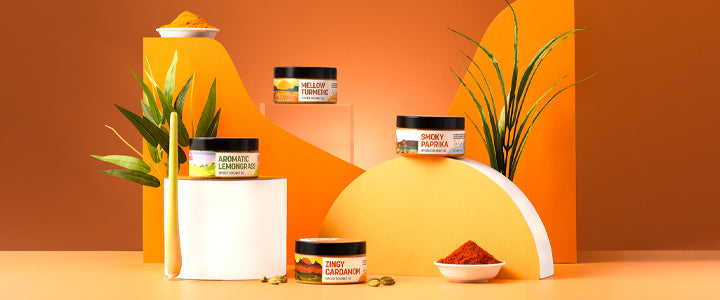Refined or unrefined coconut oil?

We all know of coconut oil. In the last few years it’s become increasingly used in cooking and various beauty products. This special oil comes from the meat of coconuts harvested from those iconic palm trees so loved on our holidays.
What we might not know is there are both refined and unrefined coconut oils which have different benefits, characteristics and uses. Which one should you choose when cooking? It’s really a personal choice.
The simple difference between the oils is the state the coconut meat when it is pressed, and this then dictates the flavour and aroma, but makes no change to its nutritional and health benefits.
What is unrefined coconut oil? Made with a process called 'wet milling' where the oil is extracted from cold fresh coconut meat and spun down in a centrifuge to produce the oil as a liquid which then solidifies at room temperature (great for shelf life and useful for cooking). This oil is commonly labelled as ‘virgin’ or ‘pure’ and has both a tropical coconut flavour and aroma. Use virgin coconut oil if you love a coconut flavour in your food. Thai curries for sure, also laksas and many vegan soups also use it.
What is refined coconut oil? Neutral is the short answer. No distinct coconut taste or aroma. Refined coconut oil is dry milled, meaning the coconut meat has been baked prior to the oil being extracted. Then the oil is is passed through a clay for filtration and to kill off microbes and remove any dust particles and insects. The result is perfect for beauty applications, such as a hair conditioning, and for people who aren't a fan of a bold coconut flavour in their foods.
Why should coconut oil be in your kitchen? The simplest answer is to use as a substitute for butter in your cooking.
For me, like all delicious food, moderation is often the key. There are contrasting views all over the internet talking of the huge benefits of coconut oil for one’s health, with others saying the oil is too fatty and unhealthy.
When cooking with coconut oil you must be aware it’s about 90% saturated fat, which is a higher percentage than butter (about 64% saturated fat). Many claim this makes coconut oil unhealthy but we disagree. Too much of anything in your diet is never good for you, the same for oils and butters.
What are bad fats and good fats? Saturated fats contribute to raising ‘bad’ HDL cholesterol levels, not good for the heart. However saturated and unsaturated fats also give ‘good’ HDL cholesterol a boost, and coconut oil is especially potent at doing so. So more oil can also make you healthier. I must mention again ‘everything in moderation'. Today it is suggested no more than 10% of your calories should come from saturated fat.
At Zing Foods we use organic Fairtrade refined coconut oil to make our spiced oils. No harsh chemicals, no coconut taste or aroma, but a spiced oil of fantastic flavours to instantly make your cooking more flavoursome and, used in moderation, healthier.
Our spiced flavoured coconut oil pots allow you to add a small spoonful of the solid oil into your cooking to make many delicious meals. See our recipe page for our favourites.
With its high smoke point of 450 degrees F the oil can be used at high cooking temperatures, to be used in baking, frying, as a replacement to butter and vegetable oil, and being solid at room temperature it has a longer shelf life. Our spiced coconut oils really are a useful and tasty addition to anyone’s kitchen.




Comments